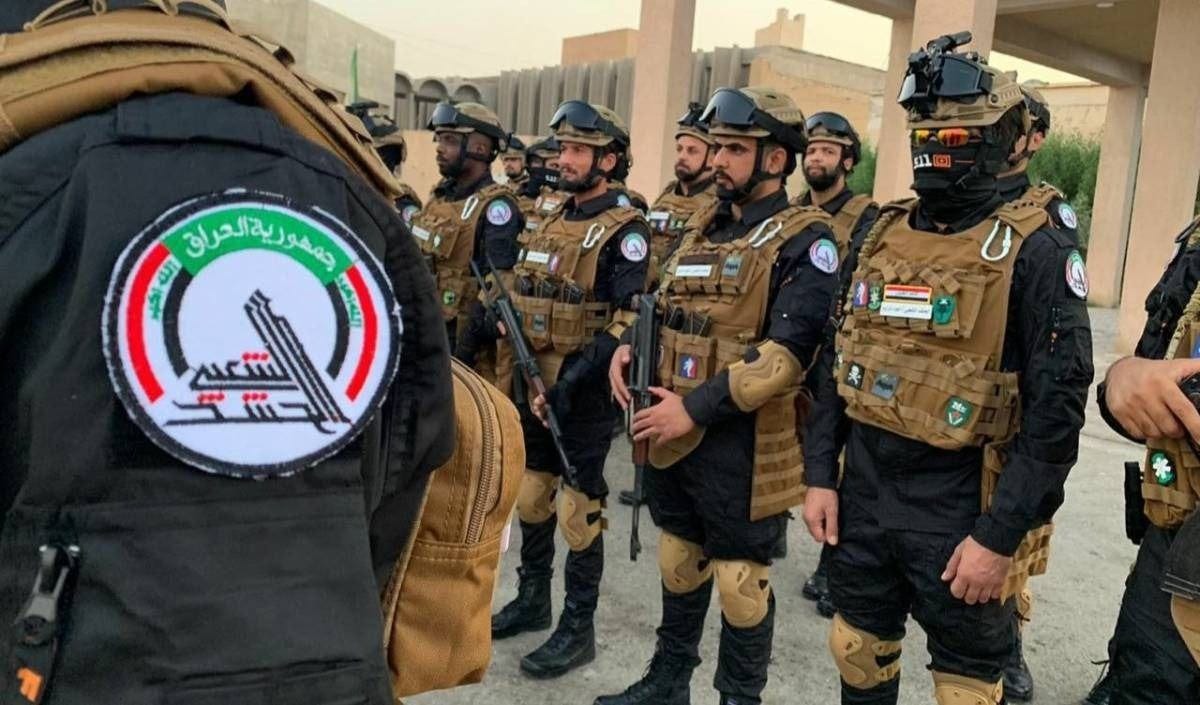Political deadlock over the PMF Service and Retirement Law
A proposed bill to regulate service and retirement rights to personnel within the Popular Mobilization Forces (PMF) has caused political fissures among the leading Shia parties of the Coordination Framework.
The draft bill known as the "Service and Retirement Law for the Mujahideen of the Popular Mobilization Commission" has become a highly contentious legislative issue that has led to delays in convening parliamentary sessions over the past few weeks.
Originally introduced in July 2024, the bill underwent a second reading in September before the government revised it and resubmitted it to parliament on February 14, 2025. However, its fate remains uncertain after PM Sudani withdrew the bill from consideration on March 11, a move that has deepened political tensions.
At the core of the contention is the fate of the PMF's chairman Falih Al-Fayyadh, who has held the position since the inception of the Hashd Al-Shaabi in 2014. Article 81 of the orginal bill stipulated that the head of the PMF, who holds a ministerial-level position, is subject to the Military Service and Retirement Law of 2010. This would mean that Fayyadh would be subject to retirement since he has exceeded the age of retirement, which is 60. In contrast, civilian ministers in Iraq are not subject to a mandatory retirement age, although there have been multiple attempts by Fayyadh's detractors to assert that he has exceeded the age of retirement regardless.
The Coordination Framework is divided on the issue—some factions want to retain Fayyadh, fearing that his removal could disrupt the balance of power, while others insist on his departure as part of broader efforts to restructure the PMF. Meanwhile, speculation has grown that Fayyadh may be planning to run alongside Sudani in the next elections under a unified coalition, adding further weight to the political maneuvering around his future.
The service and retirement bill was initially designed to bring the PMF under a structured retirement and benefits system, similar to that of other Iraqi security forces. The original draft included regulations on commissioning and promotions, the retirement age for each rank, pensions for families of fallen PMF members, and the establishment of both a martyr’s fund and a health insurance fund for PMF personnel and their families. However, the Coordination Framework's internal dispute over leadership has overshadowed these core provisions, making the law a flashpoint for broader power struggles.
Since mid-February, parliament has struggled to convene due to disagreements over the bill, delaying other legislation and exacerbating factional disputes. On February 16, Nouri Al-Maliki's State of Law coalition boycotted sessions until the PMF law was included in the agenda. On February 18, Fayyadh made a visit to Tehran—his second in recent months—seeking Iranian backing to remain in his position until the next elections.
The issue of retirement has also raised concerns about the future of PMF leadership beyond Fayyadh. Parliamentarians have noted that if the law were passed in its current form, around 400 brigade and directorate commanders would be forced into retirement without an adequate pool of replacements. To address this, the Security and Defense Committee proposed delaying the law’s implementation for three years, allowing time for the PMF to train and appoint new commanders before enforcing retirements.
The withdrawal of the bill has not gone unchallenged. On March 12, Qais Al-Khazali's Sadiqoun parliamentary bloc condemned Sudani’s decision as an attempt to indefinitely stall the law. They also blamed Deputy Speaker Mohsen Al-Mandalawi for failing to include it in parliament’s agenda. Critics have accused the government of neglecting the sacrifices of PMF fighters, particularly as the law was designed to provide financial security and long-term institutional stability for members who played a crucial role in the fight against ISIS.
A government memo explaining the withdrawal of the bill indicated two primary reasons for the decision: the need to reassess the financial impact of the law and plans to restructure the PMF. The restructuring aspect is particularly significant, as it may be a response to external pressure from the Trump administration to reform the PMF. A restructuring effort could be aimed at reducing the risk of sanctions against PMF leaders or even preempting potential Israeli strikes against its command structure.
"Based on the directive of His Excellency the Prime Minister, we request the withdrawal of our aforementioned letter and the return of the aforementioned draft law to the Council of Ministers for reconsideration and for amending the financial costs resulting from the issuance of the draft Popular Mobilization Commission bill, including the new structure it contains. We hope to complete the procedures as soon as possible.”
The fate of the PMF service and retirement law remains uncertain. While political factions have hinted at the possibility of delaying it until the next parliamentary term, its passage will have significant implications for Iraq’s security structure and political landscape. The law was intended to formalize and secure the role of the PMF within Iraq’s armed forces, but instead, it has become a battleground for competing interests, both domestic and international.


